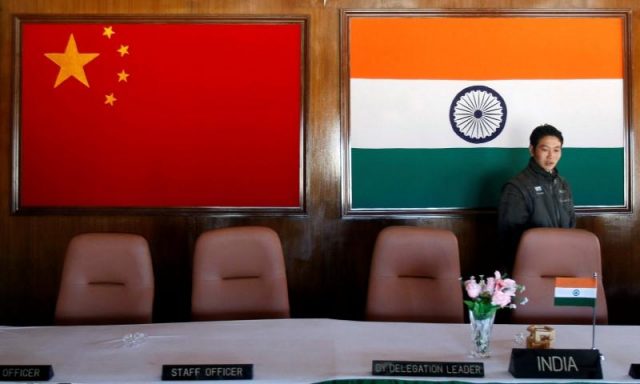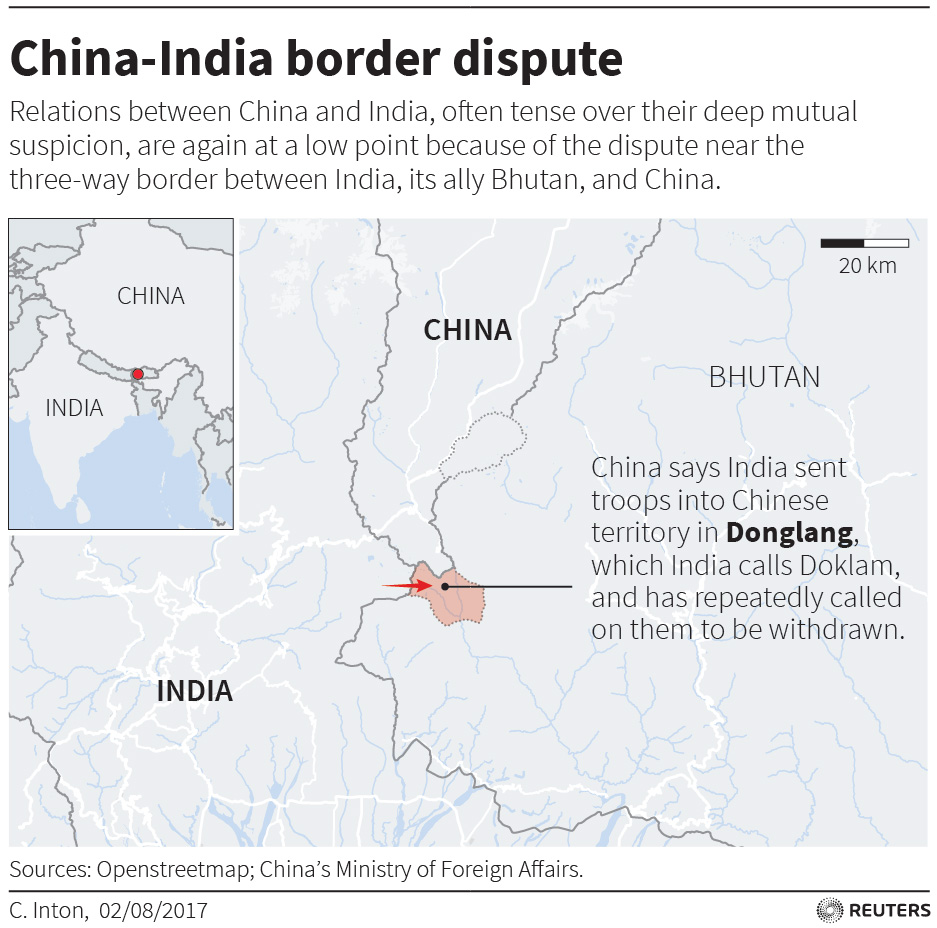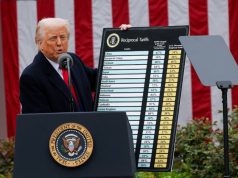
NEW DELHI (Reuters) — India’s diplomatic efforts to end a seven-week military standoff with China have hit a roadblock, people briefed on the talks said, prompting Chinese state-run media to trumpet rhetoric of “unavoidable countermeasures” on the unmarked border.
China has insisted that India unilaterally withdraw its troops from the remote Doklam plateau claimed by both Beijing and Indian ally Bhutan.
But China did not respond to India’s suggestion in the talks that it move its troops back 250 meters (820 feet) in return, said one source with close ties to Prime Minister Narendra Modi’s government.
In the low-key diplomatic maneuvers that took place outside the public eye, the Chinese countered with an offer to move back 100 meters (328 feet), so long as they received clearance from top government officials.

But there has been no comeback since, except for China’s mounting warnings of an escalation in the region, which it calls Donglang.
“It is a logjam, there is no movement at all now,” said a second source with knowledge of the talks.
In Beijing, China’s Foreign Ministry said the country would never give up any territory.
“Under no circumstances will China make its own territorial sovereignty a term of exchange,” it said in a statement sent to Reuters when asked about the talks, reiterating that India had to unconditionally withdraw its forces.
Indian troops went into Doklam in mid-June to stop a Chinese construction crew from extending a road India’s military says will bring China’s army too close for comfort in the northeast.
Their faceoff since, military experts say, is the most serious since going toe-to-toe in the 1980s, with thousands of soldiers each, elsewhere along the 3,500-kilometer (2,175-mile) border.
China has held off going to war in the hope New Delhi would see reason, the state-run Global Times, which has kept up a barrage of hostile commentary, said on Tuesday.
“If the Narendra Modi government continues ignoring the warning coming from a situation spiraling out of control, countermeasures from China will be unavoidable,” it said.
The border crisis caps a year of souring diplomatic ties between the Asian giants, even though trade between the fast growing economies is rising rapidly.
India has grown concerned at China’s ties to its arch rival Pakistan, viewing their trade corridor across Kashmir as an infringement of its claim to the whole of the region.
Modi refused to join President Xi Jinping’s signature Belt and Road initiative to knit together Asia and beyond, making India the lone country to boycott a summit in May.
China has warned New Delhi not to be drawn into a Western military alliance led by the United States and including Japan. Modi has sought closer ties with both.
“There will be no happy ending for this confrontation,” Indian foreign policy expert C. Raja Mohan wrote in the Indian Express newspaper, adding that India was unlikely to give in.
The second source said the worry was the standoff could drag on into a summit of BRICs nations China is hosting next month.
Live maneuvers
Indian military officials say there is no troop buildup on either side, nearly two months into a standoff that involved about 300 soldiers just 100 meters (328 feet) apart on a plateau 3,000 meters (10,000 feet) above sea level.
China has accused India of massing troops, however, and state media have warned against a fate worse than its defeat in a brief border war in 1962.
“We will keep engaging with China to resolve the dispute. War cannot solve problems,” Indian Foreign Minister Sushma Swaraj told parliament, sticking to a conciliatory stance.
Still, both have flexed their muscles.
Last month, China held live-fire drills on the Qinghai-Tibet Plateau near the site of the standoff, state media said.
India’s army ran low-key exercises in the Ladakh sector of the western Himalayas, where previous disputes have flared, though it is thousands of miles distant from Doklam.
“The chance of a conflict is low, nobody is expecting Xi Jinping to go to war before the Communist Party’s congress,” said Srikanth Kondapalli, a China specialist at Jawaharlal Nehru University in New Delhi, referring to an Oct-Nov meeting expected to confirm a second five-year term as party general secretary for the Chinese leader.









